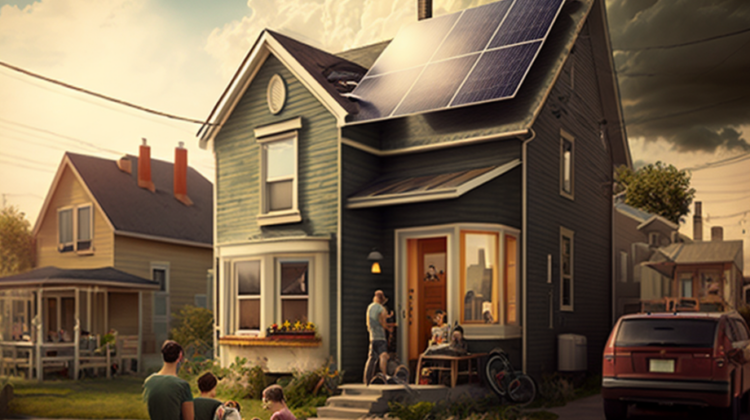
As the world grapples with climate change, many people seek ways to reduce their carbon footprint and live more sustainably. One popular option is to invest in solar panels, which generate electricity using the sun’s energy. But are solar panels worth the investment? Let’s take a closer look.
First, it’s important to understand the financial implications of installing solar panels. While the initial cost can be significant, solar panels can save you money in the long run. Depending on where you live, you may be eligible for tax credits or other incentives that can reduce the cost of installation. In addition, once your solar panels are up and running, they can significantly reduce your electricity bill. Sometimes, you can sell excess energy back to the grid, further offsetting your costs.
Of course, the amount of money you’ll save with solar panels depends on several factors, including your energy usage, the size and quality of your solar panel system, and the cost of electricity in your area. To get a sense of the potential savings, use a solar savings calculator or consult a solar panel installer.
Beyond the financial benefits, installing solar panels can also positively impact the environment. By generating your electricity, you’ll reduce your reliance on fossil fuels and help to reduce greenhouse gas emissions. In addition, solar panels require very little maintenance and can last for decades, so they’re a relatively low-maintenance way to reduce your environmental impact.
Another factor to consider when deciding whether solar panels are worth the investment is the potential increase in home value. Studies have shown that homes with solar panels sell for more than homes without them, as they’re seen as a desirable and eco-friendly feature. Investing in solar panels could pay off in the long run if you plan to sell your home.
However, there are also some potential downsides to investing in solar panels. For one, as mentioned earlier, the initial cost can be significant. While tax credits and incentives can help, you’ll still need to invest substantial money upfront to purchase and install the panels. In addition, depending on where you live, you may need to obtain permits or deal with zoning regulations, which can add to the cost and complexity of installation.
Solar panels may not be a good fit for every home or location. Solar panels require a certain amount of direct sunlight to generate sufficient energy. Solar panels may not be a good investment if your home is heavily shaded or located in an area with limited sun exposure. Similarly, solar panels may not be a practical option if you live in a room with frequent inclement weather, such as heavy rain or snow.
Ultimately, whether or not solar panels are worth the investment depends on your circumstances. Solar panels can be a smart financial and environmental choice if you live in an area with ample sun exposure, have a high electricity bill, and can invest in the upfront installation cost. However, other energy-saving measures may be a better fit if you live in a shady or cloudy area or if the upfront cost is prohibitive.
Solar panels can be a wise investment for many homeowners, but it’s essential to carefully weigh the potential benefits and drawbacks before deciding. By researching and consulting with experts, you can make an informed choice about whether solar panels are right for you and your home.